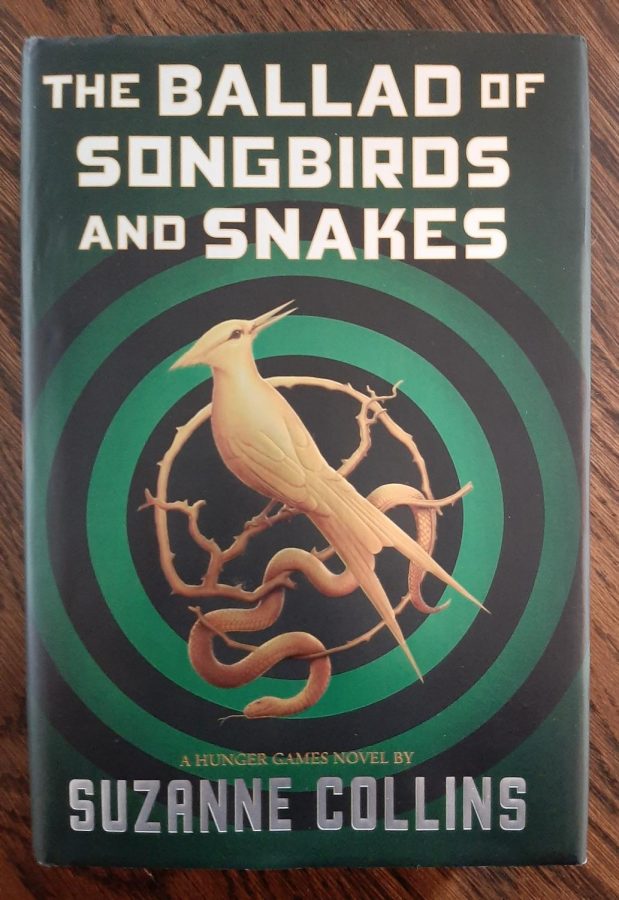The Ballad of Songbirds & Snakes: Hunger Games Prequel Review
October 14, 2020
Suzanne Collins, author of the Hunger Games trilogy, recently released a prequel to her acclaimed series titled The Ballad of Songbirds and Snakes. Fans were desperate to get their hands on a copy, and were not disappointed with the new addition.
The book focuses on the villain of the original series, Coriolanus Snow, when he is 18 years old. A student in the Capitol, Snow is acting as a mentor in the 10th annual Hunger Games. Fueled by financial struggles within his family, Snow is desperate for the glory, power, and money that will come if his assigned tribute, Lucy Gray Baird from District 12, wins the Games. However, as Lucy Gray and Coriolanus prepare for the Games, with their fates intertwined, they develop feelings for each other. Snow has to learn how to balance his desire to protect Lucy Gray with his loyalties to the Capitol.
The novel explores some very interesting topics such as human nature. When society is stripped of authority, what remains? One character in the book, Dr. Gaul, would claim that without authority or control, society would look exactly like it does in the arena. Humanity abandoned, chaos and monsters rampant. Other characters, namely Sejanus and Lucy Gray, would disagree, claiming that morality is rooted at the very core of human nature. Confronting this and similar topics, makes the story so much more interesting and complex and therefore, enjoyable to read.
The author also did a fantastic job at connecting this book to the original series. For example, the prequel explains Snow’s love for white roses and why people are allowed to sponsor and place bets on the tributes. Throughout the book, significant nods are also made to Katniss Everdeen, the trilogy heroine who will become involved in the Games 64 years after the prequel. For example, the prequel features the song that Katniss sings to Rue when she dies, as well as the origins of the song The Hanging Tree which Katniss sings during the rebellion.
As good as this book was, it left readers hanging in some aspects. For example, the book revealed that Tigris, the woman who openly despised Snow in the third book of the original series, is actually Snow’s cousin. However, the author made no effort to explain their transition from cousins/best friends to enemies. Also, Snow poisoning his council members and mistreating the victors are topics that had a lot of potential to be explored in the prequel, but weren’t. Hopefully, if the author writes more continuations, those topics will be covered.
Overall, the book was a homerun in providing an interesting narrative that simultaneously gave context and even greater depth to the original series, and fans are excited to see what else the future holds for the beloved Hunger Games series.



























